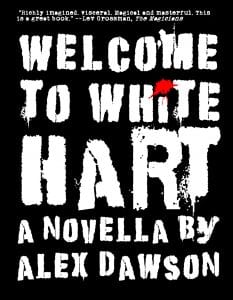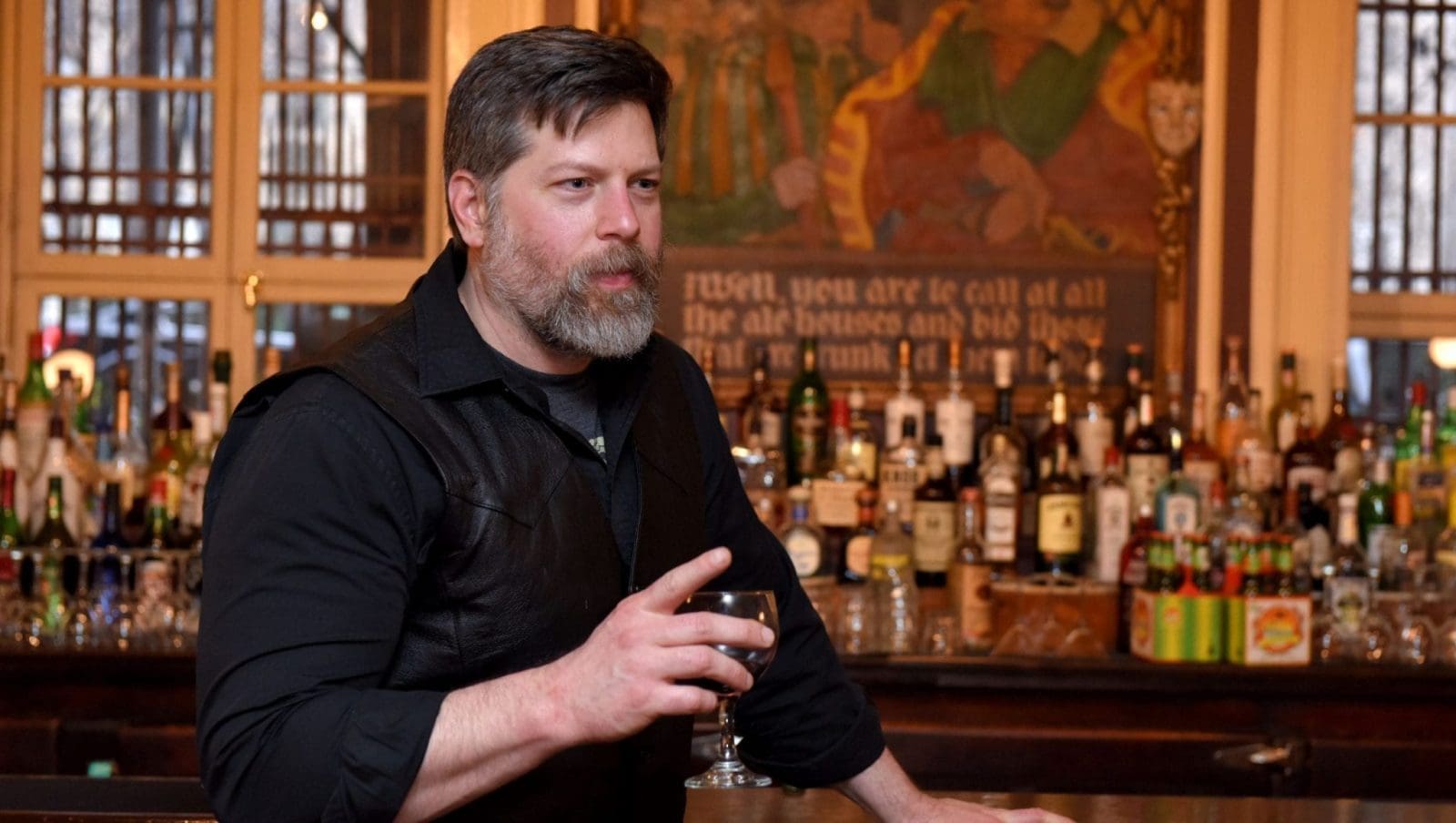What attracts authors the most is the freedom that comes with writing. However, that’s one of the only common grounds they share. I’ve read about multiple authors’ writing processes and they’ve all approached their craft differently. Some revise tirelessly like Ernest Hemingway and others barely outline like Zadie Smith. A quick Google search will bring up hundreds of ways to write a novel, short story, or poem, but there is no exact method to follow. Different techniques work for different people.
Alex Dawson, an NJ author, has many accomplishments under his belt–from previously owning a bookstore in Metuchen to the upcoming release of a novel and a memoir later this year. He’s experimented with a variety of expressive media, finally striking gold with writing.
Dawson is a professor at Rutgers University and a frequent dealer of writing advice. He hosts a program called “Into the Writers House” in which authors are invited to the school to speak with students about their recent publications. Dawson draws inspiration for his work from his personal life, tangling it with inventive stories to create something new. As an aspiring novelist who fortunately gets guidance from Dawson at Rutgers, I got the chance to speak to him one-on-one to go into depth about the publishing field and his own writing career.
1. First, what have you been working on and when can we expect it?

Photo courtesy of Alex Dawson
“Welcome to White Hart” is one of my upcoming books. It’s magical realism mixed with rustic, Alabama deer hunters. One blurb called it “Charlotte’s Web” meets “Winter’s Bone,” Jennifer Lawrence’s Appalachian dark movie. “Room to Swing an Axe” is my memoir about my childhood in Alabama. The pandemic has delayed the release of both books. One of the things I was looking forward to [with the release] were the events, performing and meeting people. I have a tour the following summer, in 2022, with other artists on the road, making stops down the Mason Dixon line. We’re going to meet with well-known writers such as Daniel Wallace and Gin Phillips. I have lots of stuff coming out in the next several years, short stories, novels, etc.
2. How did you got into writing and what’s attracted you to it the most?
You have to try on every hat. I began as a painter at Mason Gross, but I couldn’t tell stories in the same way. I thought of plots and stories, so I stepped into filmmaking at a time where you couldn’t use your phone to record. It would be quite expensive to buy and develop film stock.
Then I moved to theatre and playwriting in New York. I liked how lively it was, but not the fleeting nature of it. The moment the play was done, there wasn’t a product until you put it on stage again. Of course, plays can be published, but that isn’t the purest way to experience it. My plays became story-oriented and felt like prose. The characters would be on stage with minimal props, simply sharing stories. I started to move away from the visual, focusing more on the words. And that was the final step for me to dip into writing books.
I went on to open a bookstore in New Jersey and suddenly, I was around books all the time. There, I hosted a lot of authors, and writing seemed like something I wanted to do. The first time I approached it seriously was when I published an anthology of writers who had appeared in my store and included three of my own stories. I got my MFA.
I can sit in a room with a laptop or pen, and sometimes even without them, and occupy myself with creating stories. It’s become a saving grace for me because of how we’ve been shut in during the pandemic. It’s always been this thing for me. I love writing. It’s not a dark place for me, and even though I write about things I’m afraid to sometimes, the act of writing is something I enjoy.
3. Publishing is a very competitive field and the process can take years. What has been your experience?
One of the things I highlight is thinking of the things you can control in your writing career and process. There’s quite a bit you can control. Look for the joy and the thrills. The “Big 5”, or publishing houses, are large corporations who favor big names—celebrity biographies or best-selling authors.
The next tier is the boutique publishing houses. There are hundreds of those and tiers within them too. You don’t get a lot of money upfront and royalties are higher per book, but they publish books they love, so your connections are different. It’s about them discovering you.
Then there’s self-publishing, for when you want to get your work out into the world. Digital publishing is also available now so you don’t need to be printing copies and copies anymore. You create your own company with a unique name and pay for your own expenses. Focus on the musician mentality: if you can get 1,000 people to listen to your music, you can be pretty happy. If you can guarantee that at least 1,000 people will read anything you put out, that’s pretty good.
Because I grew up in the ‘80s and have always been into punk rock, I’m interested in punk rock publishing alongside a more traditional route. I write stuff that’s hard to classify, and that can be hard for a larger company to sell because it’s a culmination of genres. That doesn’t mean it’s hard to read, just harder to market. Everyone wants a payday and big distribution, but the many tiers of publishing focus on bringing more readers for you. Big book deals of millions of dollars are great and we could all use it, but it’s about what people want to read. It’s the difference between good and great talent. Good writing is what people want to read. Anything more than that and your audience tends to narrow.
4. Writers often say that they enjoy writing because it has no concrete rules. Do you agree with this?
I will say there are no rules. There are plenty of tools, though, but every writer is different so it depends on what works for the individual. Anything you do with aplomb and style can work. Every rule can be broken beautifully and followed poorly. I give advice to students with the caveat to do what works for you, not what you should do. When I started listening to my own advice and doing the activities I tell my students to do, my writing became better. Writing is something that frees me, not limits me.
5. What does your writing schedule look like?
The advice I give to my students is to create a writing regimen and show up to it. Whatever time is convenient or most inspiring. That’s the advice I give, but I don’t follow it, though maybe I should. I write when I have time and I never have a problem writing. It’s usually on my phone. I do have a substantial writing space and I surround myself with things I find evocative. Some people keep their workspace clean, but then there are people like Ray Bradbury who had an office filled with tin robots and rockets and Halloween masks, all things he was writing about. If he got stuck, he just needed to look around.
6. Where do you draw most of your inspiration from? Does your personal life have an impact on characters, setting, situations, etc?
My personal life absolutely impacts my characters. My kid is a huge part of what I write about. I’ve talked to a lot of writers about their kids and most often the kid is hindering their writing life. I think my kid directly affects my writing, not only by what he does and the characters that are based on him but our conversations about the storytelling world. Inspiration strikes on a daily basis and I mix my stories with my life. Even though I haven’t been there in years, almost all my stories are set in Alabama, where I was born. It’s the memories of my life mixed with the inventive realm. Even with the upcoming memoir, I want filtered truth. I know that memory is a memory of a memory. The truth interests me, not facts.
7. How has your writing process changed from drafting your first book to your most recent one and what encouraged this change?
I do the borders of the puzzle first instead of working from the inside out. I’ve learned that I’m a writer who doesn’t cut but adds. If something doesn’t work in the editing process, I won’t cut it, but instead, add more to make it work. I make a draft where I outline each chapter, and I try to make those aspects work and make sure they happen. Instead of delving in with a cool character or scene, I keep a big picture sense of the book and work from there. I outline a lot more than I used to.
Another thing that’s different is that I now have a lot of friends who are successful writers and I’m able to get jacket blurbs from them. Big publishing houses don’t legitimize me as a writer, and I don’t need to try to convince people who don’t prefer my work to like it. I focus more on just getting stuff out there. I do get publishing deals and sometimes I make money off of it, but if not, I know I can take control of the piece and it’s going to be out in the world in some form or another.
There are a hundred ways to go about this and you have to try and see what works best for you. And no matter how weird or different your method or process of writing is, it’s all about generating material in a way that works for you.
Enjoyed our interview with NJ author Alex Dawson? Then check out our list of 9 New Jersey poets to read in 2021.
Main image courtesy of Alex Dawson
About the Author/s
Student at Rutgers, writer, and avid astrology fan.
